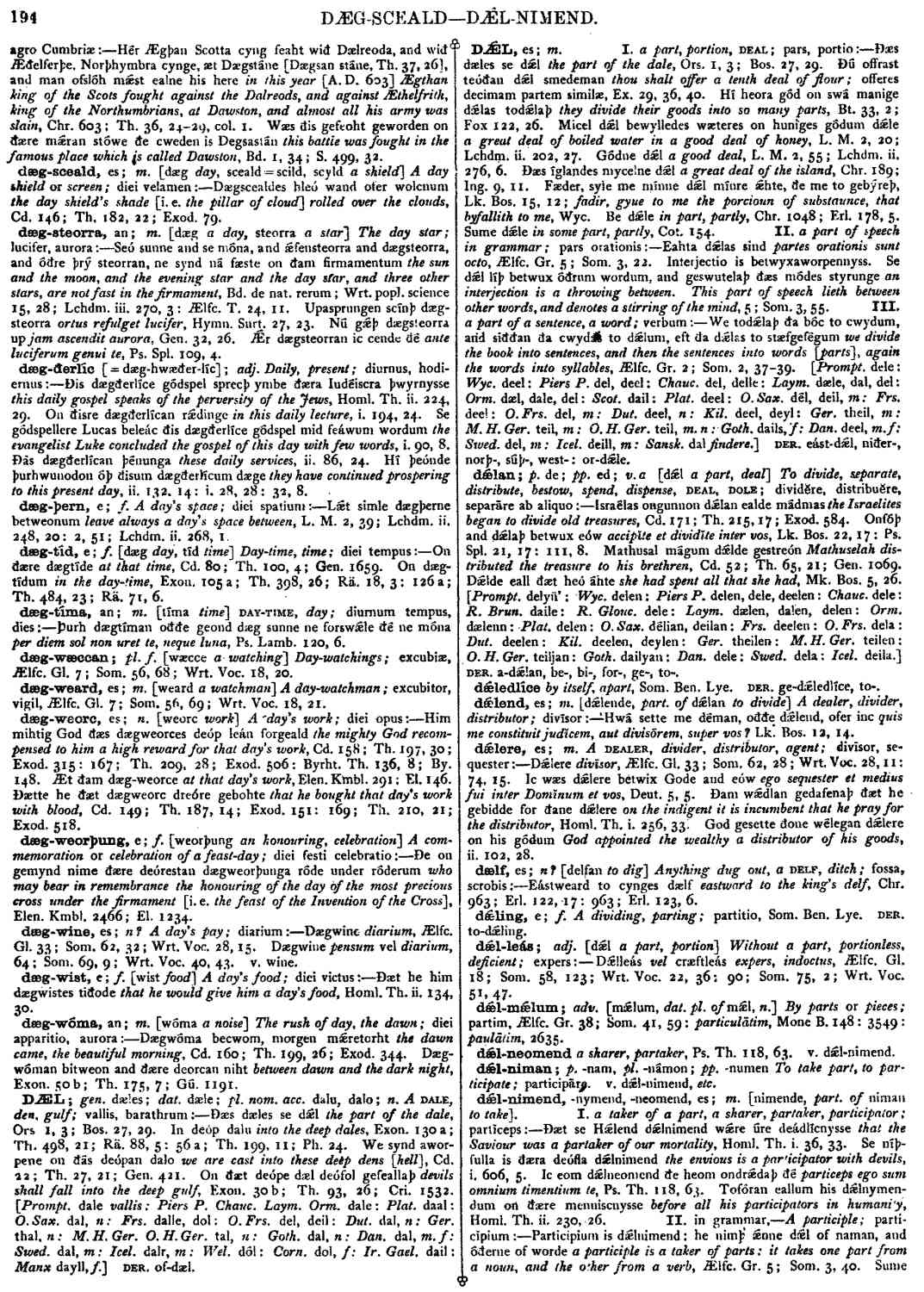DǼL
- noun [ masculine ]
-
Ðæs dæles se dǽl
the part of the dale,
- Ors. 1, 3;
- Bos. 27, 29.
-
Ðú offrast teóðan dǽl smedeman
thou shalt offer a tenth deal of flour;
offeres decimam partem similæ,- Ex. 29, 36, 40.
-
Hí heora gód on swá manige dǽlas todǽlaþ
they divide their goods into so many parts,
- Bt. 33, 2;
- Fox 122, 26.
-
Micel dǽl bewylledes wæteres on huniges gódum dǽle
a great deal of boiled water in a good deal of honey,
- L. M. 2, 20;
- Lchdm. ii. 202, 27.
-
Gódne dǽl
a good deal,
- L. M. 2, 55;
- Lchdm. ii. 276, 6.
-
Ðæs íglandes mycelne dǽl
a great deal of the island,
- Chr. 189 ;
- Ing. 9, 11.
-
Fæder, syle me mínne dǽl mínre ǽhte, ðe me to gebýreþ, Lk. Bos. 15, 12; fadir, gyue to me the porcioun of substaunce, that byfallith to me, Wyc. Be dǽle
in part, partly,
- Chr. 1048 ;
- Erl. 178, 5.
-
Sume dǽle
in some part, partly,
- Cot. 154 .
-
Eahta dǽlas sind
partes orationis sunt octo,
- Ælfc. Gr. 5 ;
- Som. 3, 22.
-
Interjectio is betwyxaworpennyss. Se dǽl líþ betwux óðrnm wordum, and geswutelaþ ðæs módes styrunge
an interjection is a throwing between. This part of speech lieth between other words, and denotes a stirring of the mind,
- 5 ;
- Som. 3, 55.
-
We todǽlaþ ða bóc to cwydum, and siððan ða cwydas to dǽlum, eft ða dǽlas to stæfgefégum
we divide the book into sentences, and then the sentences into words [parts], again the words into syllables,
- Ælfc. Gr. 2 ;
- Som. 2, 37-39.
Bosworth, Joseph. “DǼL.” In An Anglo-Saxon Dictionary Online, edited by Thomas Northcote Toller, Christ Sean, and Ondřej Tichy. Prague: Faculty of Arts, Charles University, 2014. https://bosworthtoller.com/7370.
Checked: 1